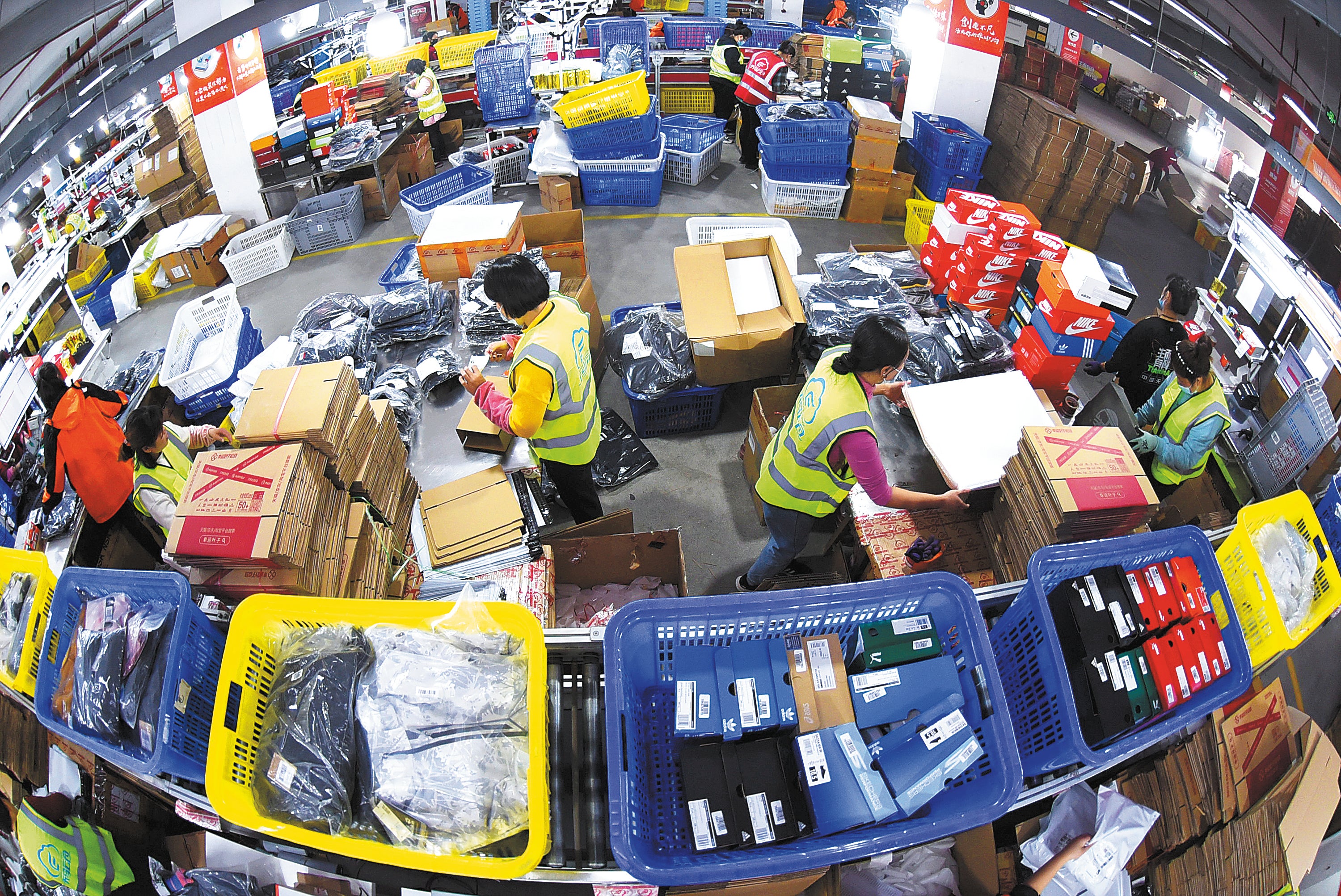Winds of change blow for shopping festival
THE ARTICLES ON THESE PAGES ARE PRODUCED BY CHINA DAILY, WHICH TAKES SOLE RESPONSIBILITY FOR THE CONTENTS

In past years, the Singles Day shopping festival on 11 November has been a celebration of consumerism in China, with eye-catching discounts, star-studded sales promotions and impressive revenue figures championing the power of spending.
This year things were different. Instead of astonishing sales figures, the main considerations for the gala, started by the e-commerce company Alibaba Group 12 years ago, were inclusive growth and eco-friendliness.
Sales growth was recorded, but at a slower pace. The 24-hour sales figure, or gross merchandise volume in e-commerce terms, was 540.3 billion yuan (£62.91 billion), 8.45 per cent more than last year. In previous years, sales growth of between 20 per cent and 50 per cent had been recorded.
Jason Yu, general manager of the consultancy Kantar Worldpanel and an expert on China’s consumer market, said that this year e-commerce platforms focused on reporting category-based revenue changes in order to assess consumption trends.
However, the passion for the festival is here to stay because it is a pivotal event in unleashing consumers’ potential to spend more and pursue quality lifestyles, he said.
Jason’s remarks are supported by the results of a survey conducted by the global consultancy Bain & Co. Of about 3,000 people asked about their attitude towards this year’s festival, 52 per cent said they planned to spend more than last year, while only 8 per cent said they were slashing their budgets.
As the festival has grown to become an international event, global labels have long cashed in, with the sales list topped by companies such as the cosmetics manufacturer L’Oréal Group and the computer company Apple.
Newcomers are looking to the event to make themselves more relevant to the Chinese market.
At this year’s event, the upscale extreme weather clothing brand Canada Goose debuted its footwear collection before the global launch, a move aimed at celebrating local culture, said the company’s president and chief executive, Dani Reiss.
Cao Lei, director of e-commerce at the consultancy Internet Economy Institute, said: “11 November is increasingly becoming a retail encyclopaedia and a compass, providing a clue to the latest and bite-sized consumer insights. Interest in individualistic, original designs is quickly gaining momentum.”
This momentum is producing opportunities for small- and-medium-sized companies in the customer-to-manufacturing market.
Gu Liang, founder of Warm Studio, a Chinese designer handbag brand, said: “We estimate that we sold 70,000 bags in this year’s festival, tripling last year’s record.” This estimate included presales that started on October 20, Gu said. “Rising orders are also helping our manufacturing partners. We’ve mobilised about 1,000 workers and about two-thirds of production capacity to meet orders generated from the festival.”
Alibaba has launched its “going green initiative”, with the volume of parcels generated during the festival posing a potential threat to the environment. The company distributed 100 million yuan worth of green vouchers to more than 2.5 million customers who bought merchandise that have lower carbon emissions in their production.
Cainiao Network, the logistics arm of Alibaba Group, also seized the environmental initiative, saying it had contributed to reducing carbon emissions by 18,000 tonnes by using electronic delivery sheets, recycled and reused parcels, and algorithms to optimise delivery routes.
The festival also painted a rosy picture of sales growth in rural areas. Sales of agricultural produce from the 12 relatively less-developed provinces in western China rose 20 per cent at this year’s festival. One hundred and sixty poor counties realised revenue growth of 44.2 per cent for all items sold on Alibaba’s e-commerce platforms.
Previously published on Chinadaily.com.cn
Subscribe to Independent Premium to bookmark this article
Want to bookmark your favourite articles and stories to read or reference later? Start your Independent Premium subscription today.